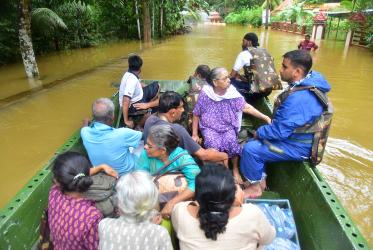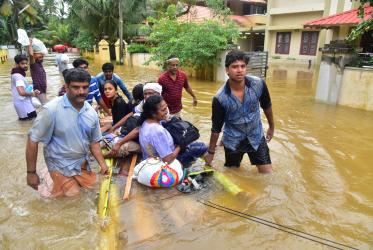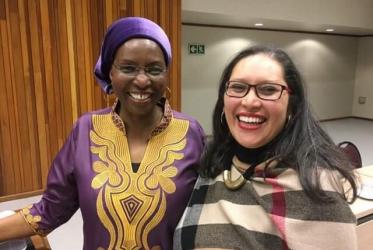Displaying 1 - 20 of 50
26 February 2020
CCIA meets in Brisbane with focus on Pacific regional priorities
19 February 2020
Eco-School promotes blue communities, green churches
19 November 2019
WCC Eco-School begins in Thailand
07 November 2019
All pilgrim routes lead to COP24
11 December 2018
Pan African Women of Faith issue fervent Call to Action
20 November 2018
Worrying food shortages compel faith action
19 October 2018
GETI students plant trees, in service for greener future
07 March 2018
Asian church leaders exchange ideas on diaconia
19 December 2017
In Zambia, foreign investors complicate “economy of life”
06 September 2017








